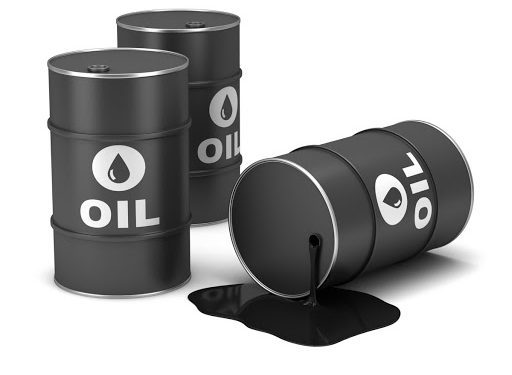$100 Oil Could Help Africa Realize Its Hydrocarbon Potential
As the conflict in Ukraine continues, several African states could stand to benefit from rising oil prices as many countries look to develop their burgeoning oil sectors.
With Big Oil eying several African countries as potential development areas for low-cost, low-carbon oil, this could be the opportunity they have been waiting for to develop their oil and gas sectors while demand for fossil fuels is still high. Since Russia invaded Ukraine last week, oil prices have soared reaching levels previously only speculated about, passing the $100 per barrel mark. The Brent Crude benchmark has been steadily climbing from the beginning of the year and achieved almost $101 this week. With Russia contributing between 25 to 30 percent of the world’s oil supply, experts are worried about a potential shortage should other states impose sanctions on Russia.
At present, the African continent produces just under 10 percent of the world’s oil, with the oil-rich states of Nigeria and Libya providing the lion’s share. Of course, rising oil prices could negatively impact African oil-producing states, but it also offers many the opportunity to push their oil exports at a time when there is little alternative.
This is being seen in Nigeria, which has been struggling to increase its crude output to pre-pandemic levels as OPEC has increased its oil quotas. Nigerian President Muhammadu Buhari stated last week that he hopes to reap the gains of the increase in oil price, building on recent work on the country’s oil industry. Nigeria has introduced new reforms to support its energy sector, with the incorporation of the Nigerian National Petroleum Company Limited (NNPCL) as a limited liability company, which it hopes will become the largest and most profitable in the region.
Nigeria is also hoping to further develop its gas resources, with more than over 200 trillion standard cubic feet proven reserves of natural gas. “We will ensure further optimal exploitation and utilization of the country’s vast Natural Gas resources. Given the country’s potential of about 600 trillion cubic feet, Natural Gas has the enormous potential to diversify and grow Nigeria’s economy,” Buhari stated.
And Namibia is now looking to develop its oil industry as TotalEnergies makes a 3 billion barrel offshore discovery. The discovery made by Venus-1 is sub-Saharan Africa’s biggest ever oil find which surpassed earlier predictions of between 1.5 billion and 2 billion barrels of oil. Total expects to produce at least 250,000 bpd from this find. The TotalEnergies report stated that Venus “cements Namibia’s position as the next deep-water exploration hotspot”.
Total’s investment is expected to reach over $13 billion, taking around seven years to pay back. As further exploration activities take place, Namibia now offers huge potential for the future of African oil and may be set to overtake oilfields in major oil-producing states Nigeria and Angola.
Angola has also reported oil and gas achievements, seeing an increase in its exports in Q4 of 2021. Sub-Saharan Africa’s second-largest oil producer saw a 3 percent increase in its crude exports, totaling 98.9 million barrels in the fourth quarter and achieving revenues of $7.8 billion.
A 2021 IMF report said, “Bolstered by the implementation of planned growth-enhancing structural reforms,” and “continued fiscal restraint should deliver a substantial overall surplus in 2021, while higher oil prices are supporting a high current account surplus.”
The International Energy Agency predicts that global demand for oil and gas will increase, with oil demand alone expanding by 3.3 million bpd in 2022. This could present a significant opportunity for African states looking to develop their oil industries, particularly if sanctions are imposed on Russia, limiting supply. And Niger is another African country hoping to benefit from the demand growth.
Niger recently signed the Declaration of Niamey alongside Algeria and Nigeria, allowing for the development of the multi-billion-dollar, 4,128 km Trans-Saharan Gas Pipeline across the three countries. Once complete, it will have the capacity to transport approximately 30 billion cubic meters of natural gas per year. Another $4.5 billion pipeline project in Niger is expected to increase the country’s production potential by five times by 2023.
And exploration across the continent generally continues to grow as international oil and gas companies look for new opportunities in the face of a looming energy transition. Several countries are pushing to develop underexplored oil regions, with investment from international oil firms, in a bid to develop their oil economies before a worldwide energy transition takes place.
Aatisha Mahajan, Vice President for Exploration at Rystad Energies explained the trend, “We see a very good year for Africa in 2022, Graff has been a success, Venus is being drilled by TotalEnergies in Namibia. In addition, we see activity in East Africa as Eni is already drilling in Kenya, and Egypt has been a hotspot for exploration for quite some time now.”
While rising oil and gas prices are not positive for everyone, sending petroproduct prices soaring, some African countries stand to benefit from an international oil and gas shortage and a price hike. Several African states have already begun to develop their oil economies and can expect more interest in the coming months as companies look to underexplored regions for low-cost, low-carbon opportunities.



